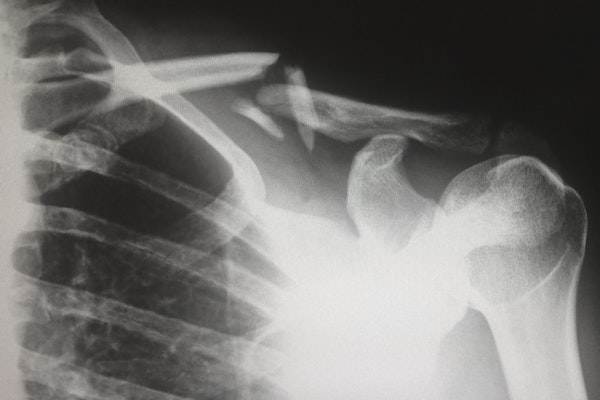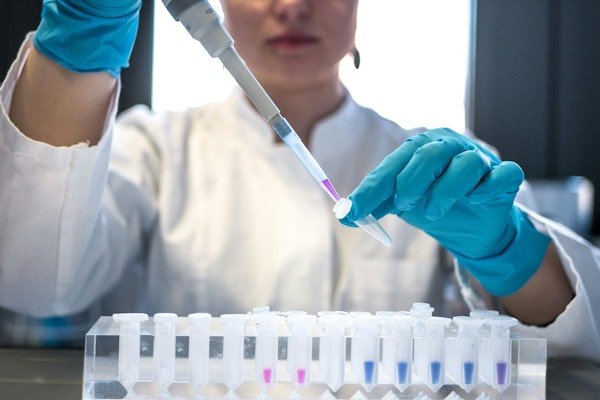
Silica Dust Exposure Drives Enforcement and Mitigation Actions Across States
Regulators are intensifying efforts to mitigate silica dust exposure, leading to significant fines and actions to prevent lung injuries in industries like stone fabrication and countertop manufacturing.
September 11, 2024
Legislation & Regulation
Litigation
Risk Management
Workers' Compensation
California
Illinois

U.S. Commercial Insurance Prices Climb 5.9% in Second Quarter of 2024
U.S. commercial insurance rates rose by 5.9% in Q2 2024, with notable hikes in excess liability and commercial auto, while workers’ comp, cyber, and D&O liability saw price decreases.
September 11, 2024
Auto
Liability
Property
Workers' Compensation

Soccer Player Wins Second Chance for Knee Injury Claim Appeal
A professional soccer player’s workers’ compensation claim was revived after a court ruled her right knee injury could be related to a prior left knee injury from her playing days, despite earlier denials.
September 9, 2024
Liability
Litigation
Workers' Compensation
District Of Columbia

X Faces Class Action Over Alleged Age Discrimination in Mass Layoffs
A federal judge has allowed roughly 150 former workers over age 50 to pursue a class action lawsuit against X, alleging age discrimination in the company’s 2022 mass layoffs under Elon Musk’s ownership.
September 5, 2024
Insurance Industry
Legislation & Regulation
Litigation
Workers' Compensation
California

Buddy System for Workplace Safety Faces Challenges Despite Its Benefits
While the buddy system is often praised for improving worker safety in high-risk environments, experts warn of potential downsides, including inconsistent practices, cost concerns, and reduced management oversight.
September 4, 2024
Liability
Risk Management
Workers' Compensation
Colorado
Connecticut
Missouri

Balancing Return to Work with Safe Accommodations for Injured Workers
Nurse Case Managers play a critical role in workers’ compensation, focusing on guiding injured workers back to gainful employment while ensuring safe accommodations are in place to prevent re-injury or setbacks.
September 3, 2024
Education & Training
Liability
Risk Management
Workers' Compensation

Tennessee Supreme Court Upholds State’s Workers’ Compensation Injury Definition
Tennessee’s definition of "injury" for workers’ compensation, requiring proof that employment contributed more than 50% to the injury, has been upheld as constitutional by the state’s Supreme Court, despite a worker’s challenge.
August 29, 2024
Insurance Industry
Legislation & Regulation
Litigation
Workers' Compensation
Tennessee

Increased Heat Levels Raise Workplace Injury Risks, Workers’ Compensation Data Reveals
A recent analysis by Colorado’s largest workers’ comp insurer highlights a 52% rise in workplace injuries when temperatures exceed 90 degrees (F), emphasizing the importance of heat safety measures for indoor and outdoor workers.
August 27, 2024
Insurance Industry
Risk Management
Workers' Compensation
Colorado

Vertical Integration in Healthcare: Impacts on Workers’ Compensation Costs and Medical Management
As vertical integration rises in healthcare, workers’ compensation professionals must navigate increased medical management costs and explore data-driven strategies to ensure favorable claim outcomes.
August 21, 2024
Risk Management
Technology
Workers' Compensation

Pennsylvania Court Rules Against Pension Offset in Post-Retirement Injury Case
In a Pennsylvania case, the court ruled that a county couldn’t offset pension payments against workers’ compensation benefits for a retiree who was injured after returning to work part-time, citing the "absurdity doctrine."
August 19, 2024
Legislation & Regulation
Litigation
Risk Management
Workers' Compensation
Pennsylvania

AI Empowers Workers’ Comp Adjusters to Focus on Empathy and Human Connection
Integrating AI into workers’ compensation claims can free adjusters from routine tasks, allowing them to focus on empathy, creative problem-solving, and personalized support, ultimately benefiting both adjusters and injured workers.
August 14, 2024
Insurance Industry
Risk Management
Technology
Workers' Compensation

Unlocking Innovation in Workers’ Comp: Improving Outcomes for Cost Savings
Innovation in workers’ comp often stalls due to cost-focused approaches, but new findings suggest that improving patient outcomes could significantly reduce overall expenses and accelerate return-to-work times.
August 12, 2024
Education & Training
Insurance Industry
Risk Management
Workers' Compensation
Ohio

Insights from the 2024 Travelers Injury Impact Report
Analyzing over 1.2 million workers’ compensation claims from 2017 to 2021, the 2024 Travelers Injury Impact Report reveals critical trends to help businesses enhance workplace safety and reduce injury-related costs.
August 8, 2024
Education & Training
Insurance Industry
Risk Management
Workers' Compensation

Pioneering Program Targets Reduction in Workplace Cancer
The Canadian Cancer Society (CCS) has launched a groundbreaking initiative to reduce workplace-related cancers. They aim to fund seven innovative research projects with an investment of $1.38 million.
August 7, 2024
Legislation & Regulation
Life & Health
Risk Management
Workers' Compensation

Balancing Topical and Systemic Pain Medications
Managing chronic pain involves choosing between topical and systemic medications, each with its own advantages and limitations in terms of safety, efficacy, and application.
August 7, 2024
Life & Health
Risk Management
Technology
Workers' Compensation




